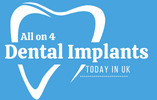Hello, I’m Dr. Elizabeth “Liz” Harrington, a prosthodontist specializing in implant dentistry. Today, I want to talk to you about the critical steps of recovery and aftercare following All-on-Four Dental Implant surgery. Proper aftercare is essential to the success of your treatment. According to a study published in the Journal of Clinical & Diagnostic Research, meticulous aftercare can significantly enhance the long-term success and satisfaction of dental implants. This guide is designed to help you navigate the healing process, ensuring that your journey to a restored smile is as smooth and effective as possible.
Understanding the Recovery Timeline
The recovery timeline for All-on-Four Dental Implants can vary from person to person, but there are general phases that all patients can expect. Immediately following the procedure, you’ll enter the initial healing phase, which lasts about 2 to 6 weeks. During this time, the implants begin to integrate with your jawbone, a process known as osseointegration, which is critical for the stability of your new teeth.
After the initial healing period, you’ll gradually be able to return to normal eating habits and oral hygiene routines, although the complete integration of the implants can take several months. It’s important to follow the specific aftercare instructions provided to support this process and ensure the best outcome. Understanding what to expect during each phase of recovery will help you prepare for the journey ahead and contribute to the successful integration of your All-on-Four Implants.
The Recovery Process
Immediate Post-Surgery:
In the first 24-48 hours following your All-on-Four Dental Implant surgery, it’s crucial to focus on managing common post-operative symptoms and ensuring a conducive environment for initial healing. Swelling, mild discomfort, and minor bleeding are normal responses as your body begins to heal. To mitigate these symptoms, I recommend applying ice packs to the affected area, taking prescribed pain relief medication as directed, and resting with your head elevated.
During this initial period, adhering to dietary restrictions is essential. Opt for soft foods and liquids to avoid putting undue pressure on the implant sites. Hydration is key, but do remember to avoid using a straw, as the suction can disrupt the healing process. These immediate post-procedure care steps are vital not only for your comfort but also for preventing complications and promoting a smooth healing journey.
-
- Rest and Relaxation: After your surgery, it’s essential to rest. Avoid strenuous activities for at least 48-72 hours.
-
- Swelling and Discomfort: Swelling and minor discomfort are normal. Applying ice packs to your face for 15-minute intervals can help reduce swelling.
-
- Bleeding: Minor bleeding or oozing is common. Bite gently on gauze pads and replace them as needed. If bleeding persists or is heavy, contact your dentist.
The First Week:
-
- Pain Management: Your dentist may prescribe pain medications. Follow the dosage instructions carefully. Over-the-counter pain relievers can also be effective.
-
- Diet: Stick to a soft food diet. Avoid hot, spicy, crunchy, or hard foods that could irritate the surgical sites. Good options include smoothies, yogurt, mashed potatoes, and soup.
-
- Oral Hygiene: Gentle oral hygiene is crucial. Rinse your mouth with a saltwater solution (one teaspoon of salt in a glass of warm water) several times a day to keep the area clean. Avoid vigorous rinsing or spitting, as this can disturb the healing process.
Weeks Two to Four:
-
- Gradual Return to Normal Diet: You can slowly reintroduce firmer foods as you feel comfortable, but continue to avoid very hard or crunchy items.
-
- Follow-Up Appointments: Attend all scheduled follow-up visits with your dentist to monitor healing and ensure everything is progressing well.
-
- Oral Hygiene: Continue to brush your teeth gently with a soft-bristled toothbrush. You may use a non-alcoholic mouthwash if recommended by your dentist.
Maintaining Oral Hygiene During Recovery
Maintaining oral hygiene post-surgery is pivotal for preventing infection and ensuring the health of your All-on-Four implants. Initially, oral care will need to be gentle yet effective; rinsing with salt water or a prescribed antimicrobial mouthwash can help keep the area clean without disturbing the surgical sites. Brushing should continue, albeit with a soft-bristled brush, carefully avoiding the implant area in the early days to prevent irritation.
As the healing progresses, you’ll be able to resume a more regular oral hygiene routine, always being mindful of the sensitivity around the implant sites. The aim is to maintain a clean oral environment that supports healing and prevents infection. Adhering to these oral hygiene practices not only facilitates a smoother recovery but also lays the foundation for the long-term success of your All-on-Four Dental Implants.
Long-Term Aftercare and Maintenance
As you transition beyond the initial recovery phase, the focus shifts toward ensuring the longevity and success of your All-on-Four Dental Implants. Long-term aftercare is paramount, involving regular dental check-ups and diligent oral hygiene practices. These implants require the same level of care as natural teeth, which includes daily brushing and flossing to prevent plaque buildup and gum disease.
Regular dental visits are crucial for monitoring the health of your implants and the surrounding tissue. During these appointments, I can assess the integrity of the implants, perform professional cleanings, and address any potential issues before they become problematic. It’s this proactive approach to aftercare that contributes significantly to the long-term success of your implants, helping to maintain not just the health of your mouth, but also the beauty of your new smile.
-
- Avoid Smoking and Alcohol: Smoking can impede healing and increase the risk of implant failure. Avoid smoking and limit alcohol consumption, especially during the initial healing period.
-
- Eat a Balanced Diet: Ensure your diet is rich in nutrients to support healing. Foods high in vitamins and minerals, such as fruits, vegetables, lean proteins, and dairy, can aid in the recovery process.
-
- Protect Your Implants: If you participate in sports or activities where there’s a risk of impact to your face, wear a mouthguard to protect your implants from damage.
-
- Stay Hydrated: Drink plenty of water to stay hydrated and support overall health. Hydration aids in the healing process and maintains good oral health.
-
- Manage Stress: Stress can negatively impact your recovery. Practice relaxation techniques such as deep breathing, meditation, or gentle exercise to keep stress levels in check.
-
- Report Any Issues: If you experience persistent pain, swelling, bleeding, or any other concerning symptoms, contact your dentist promptly. Early intervention can prevent complications.
Addressing Potential Complications
While the success rate of All-on-Four Dental Implants is high, being vigilant about potential complications is a key aspect of post-operative care. Common concerns include infection around the implant site, known as peri-implantitis, and issues with the fit or function of the prosthetic teeth. Symptoms such as persistent discomfort, swelling, or difficulty chewing should prompt an immediate consultation.
Fortunately, most complications can be effectively managed or avoided altogether with proper aftercare. Adhering to your aftercare instructions, maintaining good oral hygiene, and keeping regular dental appointments allow for the early detection and treatment of any issues. This proactive stance ensures that your All-on-Four Dental Implants remain a source of confidence and comfort, rather than concern.
Living with All-on-Four Dental Implants
After completing the recovery process and settling into your new smile, it’s time to embrace the benefits of living with All-on-Four Dental Implants. These implants are designed to function just like natural teeth, allowing you to enjoy all your favorite foods and speak with confidence. As you adjust to your new implants, you may notice an improvement in your overall quality of life, from enhanced chewing efficiency to increased self-esteem.
It’s important to remember that while All-on-Four implants are durable and long-lasting, they still require ongoing care and maintenance. Regular dental check-ups, proper oral hygiene practices, and healthy lifestyle choices are essential for preserving the integrity of your implants and ensuring their continued success. By incorporating these habits into your daily routine, you can continue to enjoy the benefits of your All-on-Four implants for years to come.
Beyond Recovery: Embracing a New Smile
In conclusion, the recovery and aftercare process for All-on-Four Dental Implants is an integral part of your journey to a restored smile. By following the guidelines outlined in this guide and staying committed to your oral health, you can maximize the success and longevity of your implants. Remember, your new smile is not just a cosmetic enhancement; it’s a testament to your commitment to investing in your oral health and overall well-being.
As you move forward with your All-on-Four implants, I encourage you to embrace the newfound confidence and freedom that comes with a beautiful, functional smile. Whether you’re enjoying a meal with friends or simply smiling with confidence, your All-in-Four implants are a constant reminder of the positive impact that comprehensive dental care can have on your life. Embrace your new smile, and continue to prioritize your oral health for a lifetime of happiness and self-assurance.
FAQs
Immediately after surgery, you can expect some swelling, minor bleeding, and discomfort. Rest is crucial, and you should avoid strenuous activities for at least 48-72 hours.
Your dentist will likely prescribe pain medication. Follow the dosage instructions carefully. Over-the-counter pain relievers like ibuprofen or acetaminophen can also be effective. Applying ice packs can help reduce swelling.
Stick to a soft food diet for the first week. Good options include smoothies, yogurt, mashed potatoes, soup, and applesauce. Gradually reintroduce firmer foods as you feel comfortable, but avoid hard, crunchy, or hot foods initially.
Gently rinse your mouth with a saltwater solution (one teaspoon of salt in a glass of warm water) several times a day. Brush your teeth carefully with a soft-bristled toothbrush, avoiding the surgical sites initially.
You can return to light activities within a few days but avoid strenuous activities and heavy lifting for at least a week or as directed by your dentist.
Osseointegration, the process where the implants integrate with your jawbone, typically takes several months. Your dentist will monitor this process during follow-up visits.






